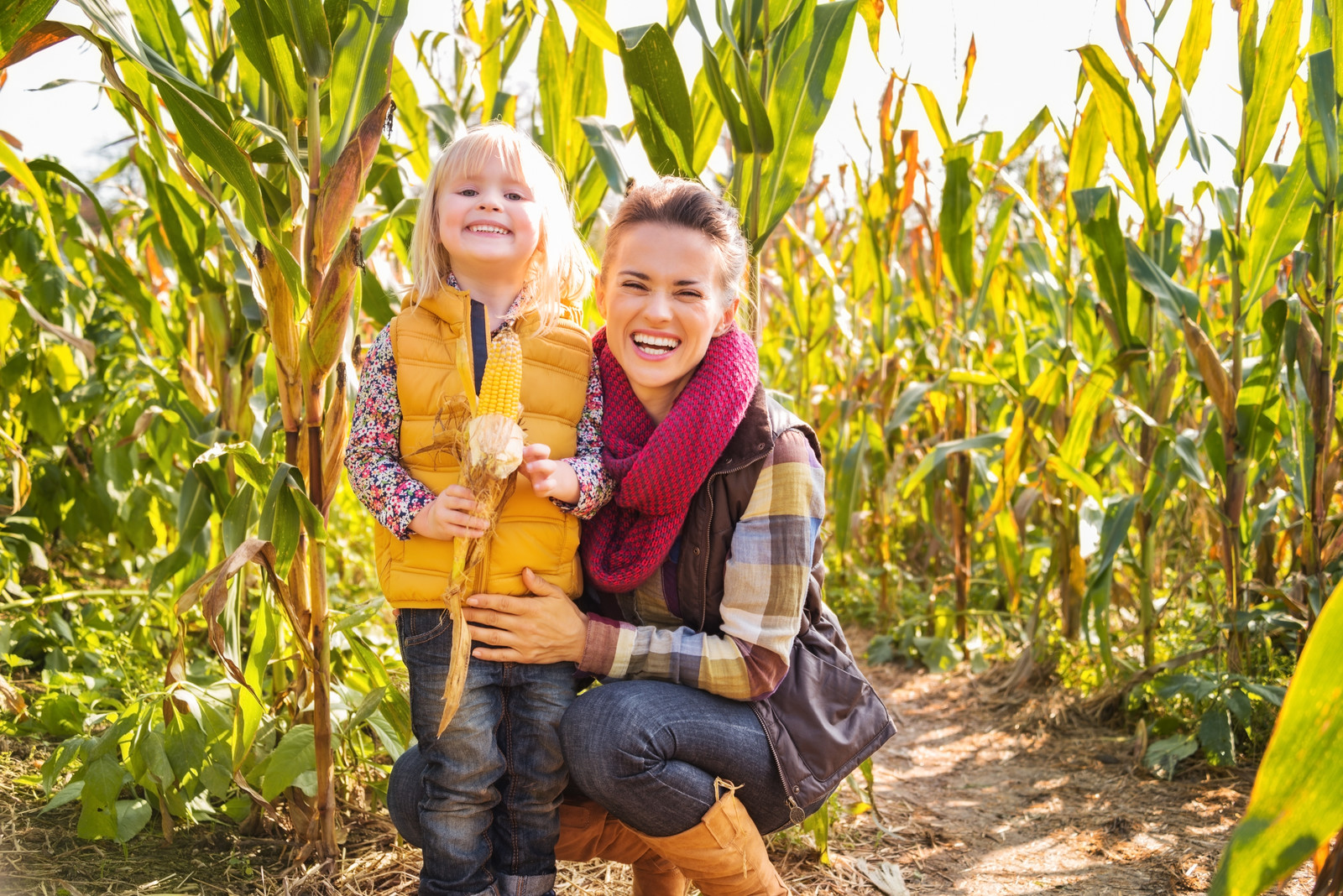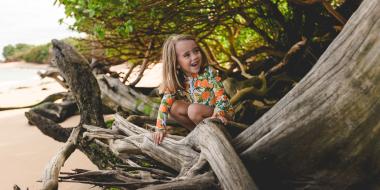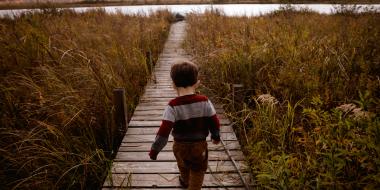Raising a human carries with it an enormous responsibility to ensure you will provide conditions conducive to growth, so that they become an adult who actualizes their fullest potential. I remember thinking about this before having children and feeling pretty confident that I was going to do a stellar job. After all, I had a doctoral degree in the field of child psychology! I knew a lot of things about human development and the intricacies of the developing mind.
And then, I became a parent. And from the very first moments of the journey I felt everything I thought I knew had changed. While I have always had a deep-seated confidence in my ability to figure it out, it would be an absolute lie to suggest I haven’t struggled with uncertainty and missteps along the way.
WHAT’S IN YOUR TOOLSHED?
As it turns out, no amount of academic smarts promises perfect parenting in a way that allows your child to truly become. A friend who is also a life coach and meditation guide once told me that the longest path we will ever travel is the one from the head to the heart. Translated into the world of parenting, this means that you can know all of the things, but until you sort out how to be what it is you know, you will do very many things that find the two misaligned.
So, if being is at the core of parenting and a necessary part in your children becoming the best version of themselves, what is it that influences your being? Ultimately, it comes down to two impactful forces: the parenting you experienced when you were a child and the different experiences within your family line.
HOW DID YOUR GARDEN GROW?
Think back to what it was like when you were a child. More than likely, you were raised by behaviorists rather than attachment-based parents, whose focus would have been on ensuring your good behavior rather than on the foundational importance of relationship and connection. Translated into the terms of your everyday experiences as a child, you would have “learned” that when you were spanked or timed out, received consequences or were grounded, that your performance determined the accessibility of your greatest need: love. Or to put it in more direct terms, in order to be loved you needed to perform “properly”. And if you didn’t succeed, that love was withdrawn in some form as a means of securing your return to those approved performative behaviours.
why is it that we parent differently from what we truly know nurtures growth?
When your parent responded to your developmentally typical behavior with anger, frustration, or sadness, you learned that your unmet needs were less valuable than the needs of others, and that denying yourself was the only way to find acceptance. In contrast, when you were rewarded for appropriate behaviours, actions, and accomplishments, you learned that worth was determined by your ability to be good enough. When you shine, good things come your way and worthiness is conditional rather than guaranteed.
Now consider the way you parent your own children. Do you find yourself using language like a “good boy/girl,” or have you ever felt yourself, even internally, retreating from connection with your child in the moments when their behavior is most challenging? Do you sometimes find yourself sometimes feeling resentment towards your child because you have cared for them above caring for yourself?
There is probably not a single parent in existence, myself included, who does not answer “yes” to one or more of these questions. (Yes, even those who know better, or have read the parenting books and undertand that these things are contrary to the way we want to raise our children.) So why is it that we parent differently from what we truly know nurtures growth? You can only give what you have, and you can only take someone as far as you have come yourself. In short, you will parent as you were parented unless you go inside and grow yourself up alongside the growing up of your child.
DIGGING DEEPER
That we cannot directly apply head smarts to how we “be” as parents is because of the deeply ingrained influence of our family line and the experiences of our ancestors. Through the study of epigenetics, scientists have been able to map out how the experiences of our parents, our parents’ parents, and even other family members down the line, actually become coded into our DNA and are then potentially expressed in our current-day lives.
turn your focus inward and consciously grow yourself up alongside the growing up of your child
Studies of Romanian orphans and Holocaust survivors have been pivotal in this research that supports that when those who have been born into a history of lack (food, money, love, etc.), war, trauma, or any other significant kind of traumatic or unsettling experience, the familial DNA literally changes to incorporate the realities of this experience, which are then expressed through the body’s physical and mental states as if it is still taking place.
Now consider that within the last three generations, almost every single person on the planet has been affected in one way or another by lack or trauma. And as a parent now, you are more than likely living with the overflow of the effects of these experiences as they leak into the minutiae of your life, including your day-to-day interactions with, and understanding of, your children. You will unconsciously live out the programming of your ancestral line unless you turn your focus inward and consciously grow yourself up alongside the growing up of your child.

NURTURING YOUR OUTPUT
Having acknowledged the role of our own upbringing and the impacts of our ancestral line in the way we parent our children, and understanding that doing our own inner work is necessary to growing our children in the best way possible so that they get to become who they were truly intended to be, the next step is then to sort out how you can go about doing your own work to grow yourself. It is often difficult for us to take care of ourselves, and instead we tend to care for everyone else first. But embarking on self-care and growth is the means by which we can do right by our children.
The following steps will have you on your way with this quest in ways that have proved enormously impactful for my clients, and indeed for myself.
Expose your roots
It is a powerful thing to shine light on what lurks in the shadows of the past. When you begin to understand the stories of your parents, your grandparents, and other family members, you can consider how their same story “themes” might be very much alive and operating in your own life. For example, I worked with a woman whose mother was a child Holocaust survivor, along with her own mother. They lived through horrific fear. When my client eventually had children of her own there was debilitating separation anxiety in play for both the children and my client.
let curiosity be your guide
They could not be apart, even to use the washroom, for years. And yet, as it happens, the story was not hers to own. She was living out the ancestral trauma of her family line in a deeply encoded belief that for everyone to be safe, children need to be within arm’s length at all times. When she came to understand that, and allowed her ancestors to claim the story so she no longer had to, shining light into those dark shadows, she found that both she and her children were increasingly able to find their courage and create new belief systems about themselves and their lives.
You don’t have to fix it. The most brilliant starting place is to bring light to it, and healing can naturally follow.
Uproot old beliefs
Descartes is famously quoted as saying, “I think therefore I am,” which may have us stumble into an assumption that our thoughts define us. And yet, just because you have a thought, it does not mean that the thought is true or needs to be made true. In spite of this, very few of us actually question the validity of our own thoughts. Instead, whatever is lurking in the programming of our minds, brought forward from our own childhood experiences or ancestral line, finds its unbidden way into how we interpret and experience our lives. For example, if your child is hitting his sibling, you might have the thought, “My child should not do that.” And then you become frustrated or impatient with your child because you believe it should not be happening. But what if you questioned this thought? Maybe, in a way, your child should hit his sibling. Perhaps because it is developmentally appropriate, or it is his way of signaling an underlying unmet need, or to wake you up from your unchallenged mind to see the world anew. Of course, this isn’t to say that you should then allow the hitting to continue. Step in to guide, co-regulate, create containment, provide understanding, redirect, and teach. And when you do so from a place of acceptance rather than resistance, both you and your child grow.
Cultivate curiosity
Curiosity is a magical thing when it comes to doing our own inner work. Curiosity stands in quiet observation of both self and other, and allows you to pull the lens back for a birds-eye view. What is happening for my child in this moment? What is happening for me in this moment? How are these two things connected? What is the message in this situation for me? What old story or program is running the show here, and how might I step in, authentically aligned for myself and my child so that I can write a new story? Perhaps one with a happier ending. When you can sit in curiosity, you can go to magical places that would otherwise be instantly shut down in the wake of judgement-fueled reactions. Instead, let curiosity be your guide to both a more peaceful path and continued self-growth.
Await the harvest
When you plant a tree, it does not immediately bear fruit because the root system needs time to develop and settle into its new home. For a long time, you engage in care routines for the tree to create the conditions conducive to growth, knowing that you may see little to no evidence of fruit! But you trust the journey, knowing that the end result is well-worth the front-end work. It is the same with us: when we trust in the process of caring for our own hearts and engage in the work to make that happen, we will grow and eventually thrive. That growth bears fruit that will empower you to be able to show up in stunning ways to facilitate the growth of your child. Lean into the journey that is parenthood and know that the fruit will surely come.
We are all affected by our childhood and the life experiences of those who cared for us as children, who themselves grew up affected by the experiences of those who cared for them, and so on. Our childhood has everything to do with how we parent and no matter how many parenting books you read or how many lectures you attend or how many podcasts you listen to, you will parent as you were parented until (and herein lays the potential!) you turn the lens inward and endeavor to transform your life, including how you parent, through your own growth journey. It is my heartfelt belief that if just one generation of parents showed up in this way for our children, we would change the world. Let us discover the profound possibility in that.
Journey on through your garden. I’ll see you on the path.
You may also enjoy: Unlocking Anxiety: Parenting in Uncertain Times, Playfulness as a Parenting Strategy, and Simplicity Parenting in a World that Asks Too Much.






